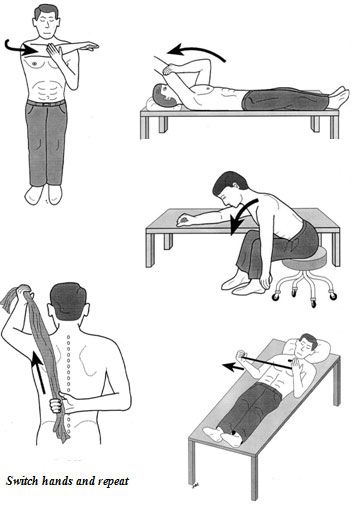Have you been experiencing pain and/or stiffness in your shoulder joint for quite some time? There’s a chance you might be suffering from frozen shoulder syndrome. Frozen shoulder is a condition that causes significant limitations in shoulder joint movement, which can be quite debilitating. In the points below, we’ll explain exactly what frozen shoulder is, its symptoms, how to treat frozen shoulder and other helpful information.
What are the symptoms of frozen shoulder?
Also referred to as adhesive capsulitis, frozen shoulder is a painful condition where movement in the shoulder becomes increasingly limited as time goes on. This is because the shoulder joint’s surrounding connective tissues are thickening and stiffening, which causes further “freezing” in a painful cycle.
Frozen shoulder typically develops over several months, and it can take between one and three years for the affected area to gradually loosen and return to normal. Your symptoms might include soreness, stiffness, and smaller range of motion in the affected shoulder.
People between 40 and 60 years old tend to be the most susceptible to frozen shoulder, with women being more likely to develop the condition than men.
What causes frozen shoulder and how can it be avoided?
Despite shoulder pain being the third most common musculoskeletal complaint, the exact cause of frozen shoulder is unknown. Evidence suggests that it’s related to an injury or overuse of the shoulder joint, but other risk factors for developing frozen shoulder include diabetes, thyroid problems and cardiovascular disease. Evidence also suggests that poor ergonomics could be a contributing factor, just as it’s clearly responsible for numerous other musculoskeletal conditions.
How is frozen shoulder treated, and what are the possible outcomes of treatment?
Frozen shoulder is typically treated with a tailored combination of physical therapy, exercise and pain medication. In some rare cases, surgery may be necessary to release the connective tissue around the shoulder joint.
At Eastern Therapies, one of our highly trained myotherapists and acupuncturists will work closely alongside you to relieve pain and tension in your shoulder joint, through a tailored treatment plan based on your specific condition.
If you’ve already tried other modalities and not seen the desired results, then our next recommendation would be to consider acupuncture and myotherapy as a potential treatment option. Acupuncture can help to manage symptoms associated with frozen shoulder, with the possibility to regain full range of motion within a year or two.
Managing the symptoms of your frozen shoulder and maintaining an active lifestyle
First and foremost, it’s important to stay as active as possible and maintain a regular stretching and exercise routine. Physical therapy is the most optimal way to regain full range of motion, and our practitioners are available to provide tailored advice and recommendations.

Book frozen shoulder treatment in Bondi today
At Eastern Therapies, we’ll begin with a comprehensive consultation to discuss previous injuries or other factors that might have contributed/be contributing to your shoulder pain. This, along with an examination of the affected area, allows us to provide you with personalised treatment that targets your individual condition.
Ready for your consultation? Book an appointment at Eastern Therapies today.




